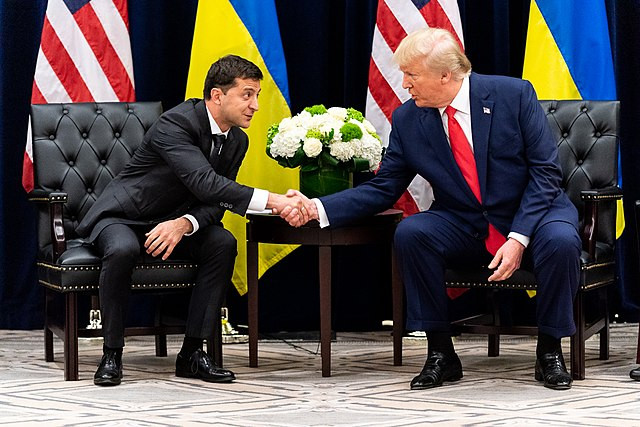Ukraine has reached a preliminary agreement with the United States on a minerals deal that would grant Washington a stake in the country's state-owned natural resources while securing economic benefits for Kyiv. Ukrainian officials said the agreement improves on earlier U.S. demands, including the removal of a controversial proposal for Ukraine to pay $500 billion in exchange for continued American support.
Prime Minister Denys Shmyhal announced Wednesday that Kyiv would authorize the draft agreement ahead of President Volodymyr Zelensky's scheduled visit to Washington on Friday, where he is expected to finalize the deal with President Donald Trump. Shmyhal said the agreement demonstrates U.S. backing for Ukraine but acknowledged that it does not provide explicit security guarantees.
"After the Ukrainian president and the U.S. president agree on security guarantees, agree on how we tie this preliminary agreement to security guarantees from the United States for our country, in the presence of both presidents, a representative of the Ukrainian government will sign this preliminary agreement," Shmyhal said in televised remarks.
The deal outlines that Ukraine will contribute 50% of proceeds from the future monetization of state-owned natural resource assets and related infrastructure. However, the agreement excludes currently active resources such as oil and gas, limiting its immediate economic impact. "Already existing deposits, facilities, licenses, and rents are not subject to discussion when creating this fund," Shmyhal said.
A Ukrainian official told ABC News that the agreement's revised terms improve Kyiv's position, particularly by ensuring that the fund managing these resources is not entirely U.S.-owned. The removal of Trump's initial $500 billion demand also marks a significant shift in negotiations, following weeks of tense discussions between Washington and Kyiv.
Trump did not confirm the U.S. had officially signed off on the deal but acknowledged Zelensky's upcoming visit. "It's OK with me if he'd like to," Trump said when asked whether he would finalize the agreement in person.
Carl Bildt, the former Swedish prime minister and co-chair of the European Council on Foreign Relations, downplayed the significance of the minerals deal, calling it a "sideshow" aimed primarily at appeasing Trump. "It is not going to give a lot of money to the U.S., and I don't see it having any material economic effect for very many years," Bildt told the BBC.




